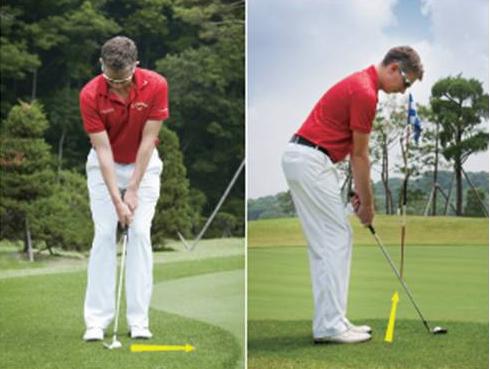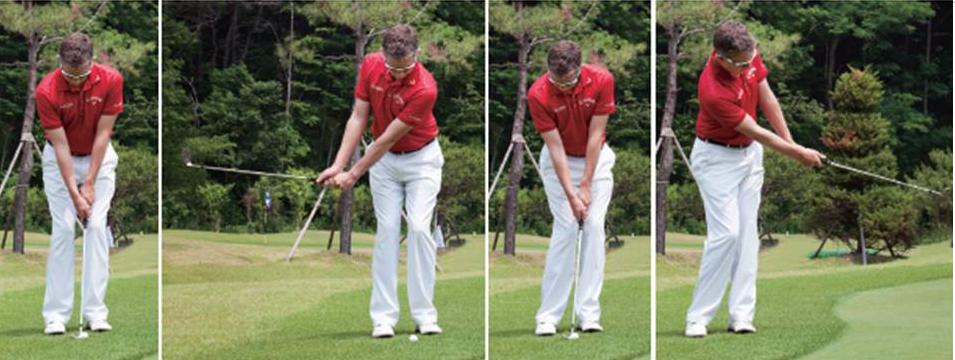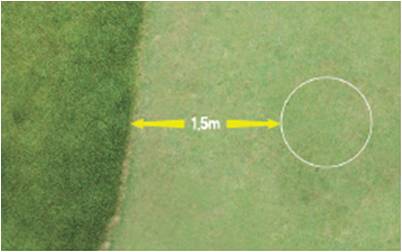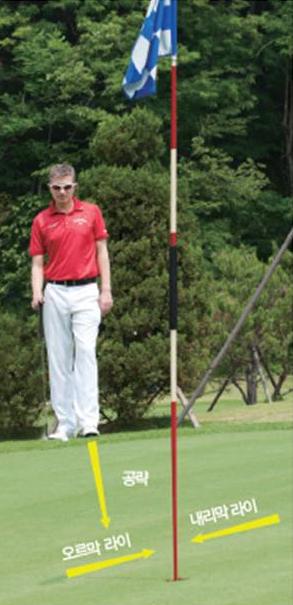So often, when watching top players, we marvel at the way they go about hitting a driver, or the accuracy of their iron play, but more often than not, what separates these players from the mid field players is how they waste no shots playing the simple shots. When they miss a green in and around the edge, they make a par with so little effort that most of us do not even recognize the skill. Other players might play as well from tee to green, but make 2 more bogeys by not making that simple par save, 2 shots every 18 holes, 8 shots over a 4 round tournament, and that’s the difference between winning and 30th place! This can be applied to amateur players as well; maybe you are trying to break 90 for the first time, or 80? Playing these simple shots better will make that difference between 81 and 79. The problem is you normally don’t think about these shots because they are not exciting. Nobody recognizes your skill at these shots or applauds when you play it well; but the fact is, they are just as important as the exciting parts of the game!
Technique
The title of this article is “Simple Shots”, which means the technique should not be complicated! It might even seem too simple to you; but trust me, it is this simple.
Address
 Start by griping the club a little shorter than normal.
Start by griping the club a little shorter than normal.- Position your body, feet, knees, hips, and shoulders square to the target – the same as you would with a full shot. (Do not open your stance)
- Narrow your stance so your heels are only about a clubhead wide.
- The ball position should be in the centre of your stance. (Not to the right side)
- Stand a little closer to the ball than normal – more like the distance you would stand to your putter.
- Lean your upper body towards the target so that your chest is slightly in front of the ball.
Swing
- The basic concept is that the position you have created at address should be the position you are in at impact.
- Rotate you chest, stomach, and hips to the right in the backswing, maintaining your chest position in address ( slightly left of the ball)
- Now reverse this movement with a rotation to the left and back to impact, again maintain the same chest position.
- Finish the follow-through by continuing the rotation.
- During the whole movement, your wrists should remain soft, so they cock naturally.

Tempo
- The tempo of the swing should be brisk (not fast).
- The tempo should remain the same for all lengths of shots.
Distance Control
- The technique will remain the same. You simply allow your body to rotate and your wrists to naturally cock more the longer the shot gets.
Club Selection
There is one golden rule to remember when selecting a club:
“Play the simplest shot that is available”
This might sound simple, and you think you are already doing this, but you would be amazed at just how many players, amateur and professional, are making simple shots more difficult than they really need to because of the type of shot they are selecting. A good way to learn what is the simplest shot is to think to yourself, if I had to throw the ball to the pin and make it finish close, how would I throw it?
- How high would I throw it?
- Where would I make the ball land?
- How much would it fly in the air, and how much would it run on the ground?
If you take a look in the picture example, I am around 5 m off the green surface, with the pin about 10 m on the green. A normal situation when you have missed a green on the edge. I have given 3 examples of different ways to throw the ball close to the pin.
- A. Throwing the ball high in the air, landing it about 75% of the distance and letting it roll the last 25%.
If you tried this, you would find it takes a big swing of your arm to throw the ball high, and a lot of skill to make it land in the correct place. You might need 5 goes to get one close.
- B. Again, throwing the ball into the air landing about 50% of the distance and letting it roll the last 50% on the ground.
Not quite as big a swing of the arm, but still difficult to get right the first time.
- C. Throwing the ball low, landing it about 25% of the distance and letting it roll the last 25% on the ground.
I think most people would find this the easiest way. It requires the smallest swing of the arm. The landing point on the green is close to you and easy to hit first time. You would get the ball with in a makeable distance from the hole on a regular basis.
What this normally means is keeping the ball as low to the ground as you can is the simplest shot. The landing point is closer to you and easier to hit. It requires the smallest swing, so there is less chance for a miss shot. It is simply easier to repeat.
 I like to chose a landing spot on the green about 1.5 from the edge. This is a good distance because the closer you land the ball to the edge, the lower you can play the shot, and the closer the spot will be to you. However, landing it closer than 1.5 m is risky because if you where to land the ball on the fringe of the green, rather than on the green by mistake, the ball would bounce very differently. This brings luck into the shot, which is what we want to remove. Once you have these 2 factors in mind, keep the ball as low as possible, and land the ball around 1.5 m on the green, it should be an easy process of selecting the right club. Think to yourself, what club do I need to select to land the ball on this point and make it run out to the hole?
I like to chose a landing spot on the green about 1.5 from the edge. This is a good distance because the closer you land the ball to the edge, the lower you can play the shot, and the closer the spot will be to you. However, landing it closer than 1.5 m is risky because if you where to land the ball on the fringe of the green, rather than on the green by mistake, the ball would bounce very differently. This brings luck into the shot, which is what we want to remove. Once you have these 2 factors in mind, keep the ball as low as possible, and land the ball around 1.5 m on the green, it should be an easy process of selecting the right club. Think to yourself, what club do I need to select to land the ball on this point and make it run out to the hole?
Management
So often, players think that course management only refers to the long game, but this is not true. There is course management even in the simplest shots from the edge of the green. Next time you are hitting one of these simple chip shots from the edge, I would like you to consider the slope of the green and which side of the hole will leave you the easiest putt. I think for most of us this will be uphill with little break. A 4ft – 5ft putt straight up the hill will be easier than a 3ft putt down and across the hill.

